What I Wish I Knew When We First Started Wondering
Our Story Started with a Hunch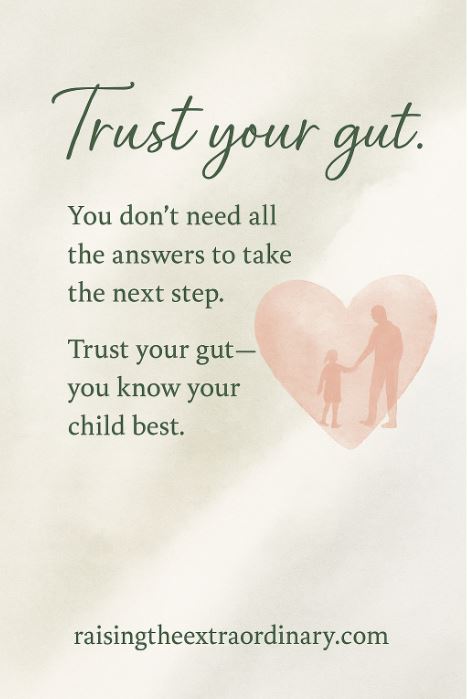
My wife Sarah and I started noticing small things with our son, John. He didn’t make much eye contact. He didn’t respond to his name the way other kids did. There wasn’t anything huge or dramatic—it was just a series of quiet “somethings” that didn’t sit quite right.
Thankfully, Sarah trusted her instincts (and overcame my reluctance…) and pushed for answers. Because of her persistence, John was diagnosed with autism just before his second birthday. I’ll be honest—hearing that word was hard. But at the same time, there was relief in finally knowing what was going on.
Early diagnosis can open doors to support. It doesn’t make things easy, but it can make things clearer. In our case, even with therapies and interventions, it’s hard to know how much of an impact they’ve had. Sometimes, I think God has His own plan—and we can’t go over it, we can’t go under it, we just have to go through it.
If you’re reading this because you’re wondering about your own child, I want you to know you’re not alone. I’ve been there, as have so many others in our community. This post is here to share what we’ve learned—so that if your child is wired differently too, you’ll have a little more clarity on what to look for and where to start.
What Does “Neurodivergent” Mean?
“Neurodivergent” is a term used to describe brains that work differently than what’s considered typical. That might include autism, ADHD, dyslexia, dyspraxia, sensory processing differences, and more.
These aren’t flaws. They’re just different ways of experiencing the world—and often, they come with strengths we never expected. The neurodiversity movement encourages us to focus on support, not fixing. It reminds us that every brain God creates has value, purpose, and potential.
Early Signs of Autism: What We Noticed First
Autism can affect how a child communicates, plays, and reacts to the world around them. Many of the signs show up in the toddler years, though some are noticeable earlier.
Social Communication Differences
These were the first things we picked up on with John:
- Limited or no eye contact
- Not responding to his name
- Few facial expressions or gestures (like pointing or waving)
- Preferring to play alone
- Decreasing vocabulary / verbal skills
Repetitive Behaviors and Sensory Sensitivities
As time went on, other things became clear:
- Self injury
- Spinning & other stim behaviors
- Strong reactions to certain textures, sounds, or lights
- Aggressive behavior / frustration
Recognizing ADHD in Young Children
Some kids are naturally energetic and distractible—but ADHD goes deeper. It’s persistent, and it interferes with everyday life.
Inattention
- Struggles to concentrate, even on fun tasks
- Constantly losing toys or forgetting what they were doing
- Seems to “zone out” a lot
Hyperactivity
- Always moving, talking, or fidgeting
- Difficulty staying seated or following directions
Impulsivity
- Acting without thinking through the consequences
- Interrupting or taking risks without realizing the danger
Other Signs of Neurodivergence
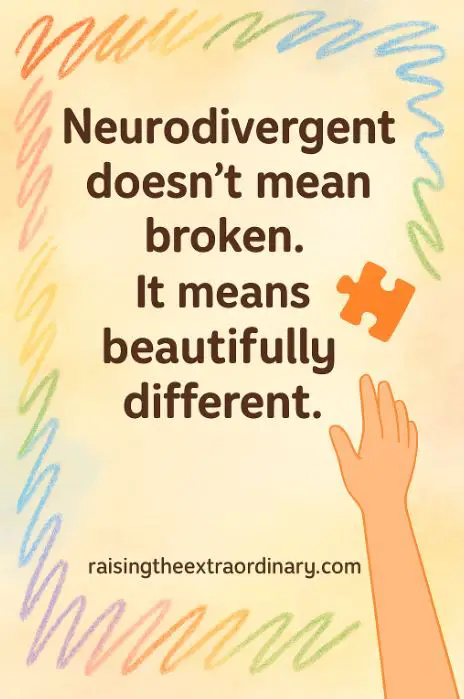
Learning Differences
- Dyslexia: Trouble with reading, decoding words
- Dyscalculia: Difficulty understanding numbers or math concepts
- Dysgraphia: Struggles with writing, spelling, and fine motor coordination
Motor Coordination Challenges (Dyspraxia)
- Appears clumsy or uncoordinated
- Trouble with handwriting or sports
- Struggles with speech clarity or planning physical tasks
Sensory Processing Differences
- Overreaction to normal sounds or textures
- Seeks out strong sensory input (e.g., crashing into furniture, windows, walls)
- Meltdowns triggered by sensory overload or for seemingly no reason
Shared Signs Across Neurodivergent Profiles
While each diagnosis is unique, many of these traits overlap:
- Intense focus or fixation on favorite topics
- High creativity and out-of-the-box thinking
- Emotional highs and lows
- Trouble handling transitions or changes in routine
- Difficulty with executive functioning (planning, organizing, finishing tasks)
When Should You Seek Help?
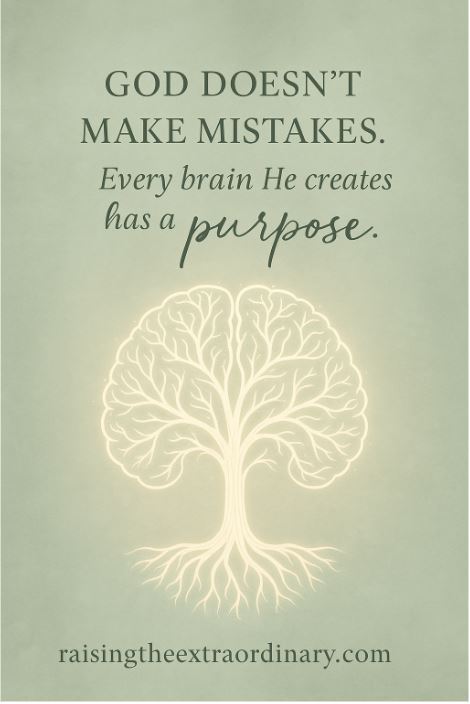
Here’s my best advice: trust your gut.
If you’re noticing patterns that concern you—or even just make you pause—it’s okay to ask questions. Start with your pediatrician. They can help monitor development and guide you toward next steps, which may include screenings or referrals to specialists.
It also helps to take notes. Write down behaviors you notice, when they happen, what the triggers might be. That kind of record was a big help when we began seeking support for John.
And remember—asking for help doesn’t mean something is wrong with your child. It just means you’re doing what loving parents do: trying to understand and support them better.
Creating a Supportive Environment
Once we knew John was neurodivergent, we began adjusting our home and routines to support him. It didn’t happen all at once, and we’re still learning. But here are a few things that made a difference:
- Focus on strengths. John loved to move – so we go on lots of walks and drives and push him in the swing almost daily.
- Use structure. Predictable routines help him feel safe.
- Adapt the environment. We have installed hammocks in our home as well as sensory tools like weighted blankets and fidget items.
- Partner with educators. If your child is in school, work with their teachers. IEPs and 504 plans can open doors to much-needed accommodations.
- Find the right therapies. Occupational, speech, or behavioral therapy can make a world of difference—not just for the child, but for the whole family.
Build a Village—and Let Them In
This journey is hard. It can feel isolating. But you are not meant to do this alone.
Reach out to other parents. Join support groups. Talk to someone who’s further down the road. You’ll find hope, wisdom, and the kind of strength that only comes from shared experience.
And give yourself grace. You don’t have to be perfect. You just have to keep showing up with love.
Final Thoughts
Recognizing the signs of neurodivergence doesn’t mean something is wrong. It means you’ve noticed something important—and now you get the chance to respond with compassion and curiosity.
Your child may not follow the typical path—but that doesn’t make their journey any less valuable. In fact, it may just be more extraordinary than you ever imagined. We have noticed a big impact in our home and children from having John in our lives. It wasn’t our plan or the path we expected, but it’s been full of blessings – some more hidden than others.
If you’re wondering, keep wondering. Keep asking. Keep loving.
You’re doing better than you think.
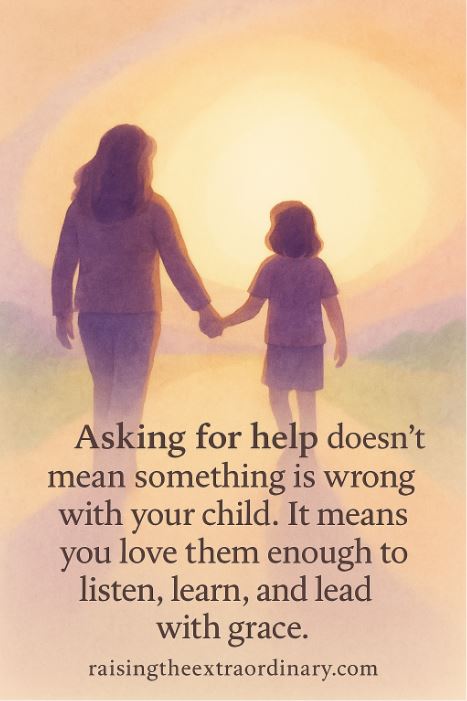





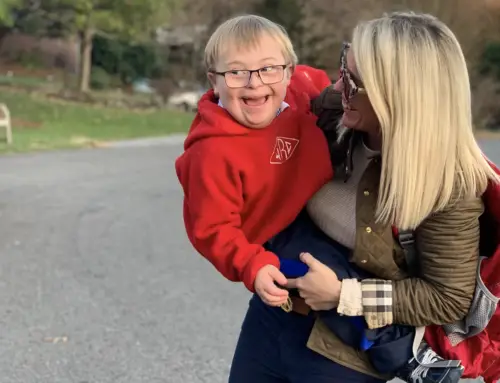

Leave A Comment